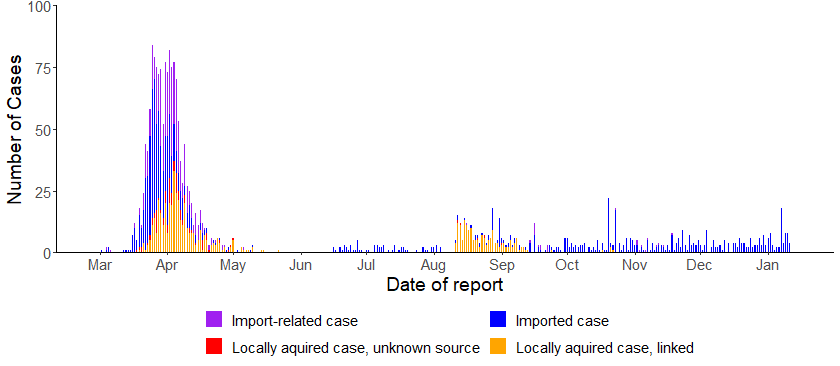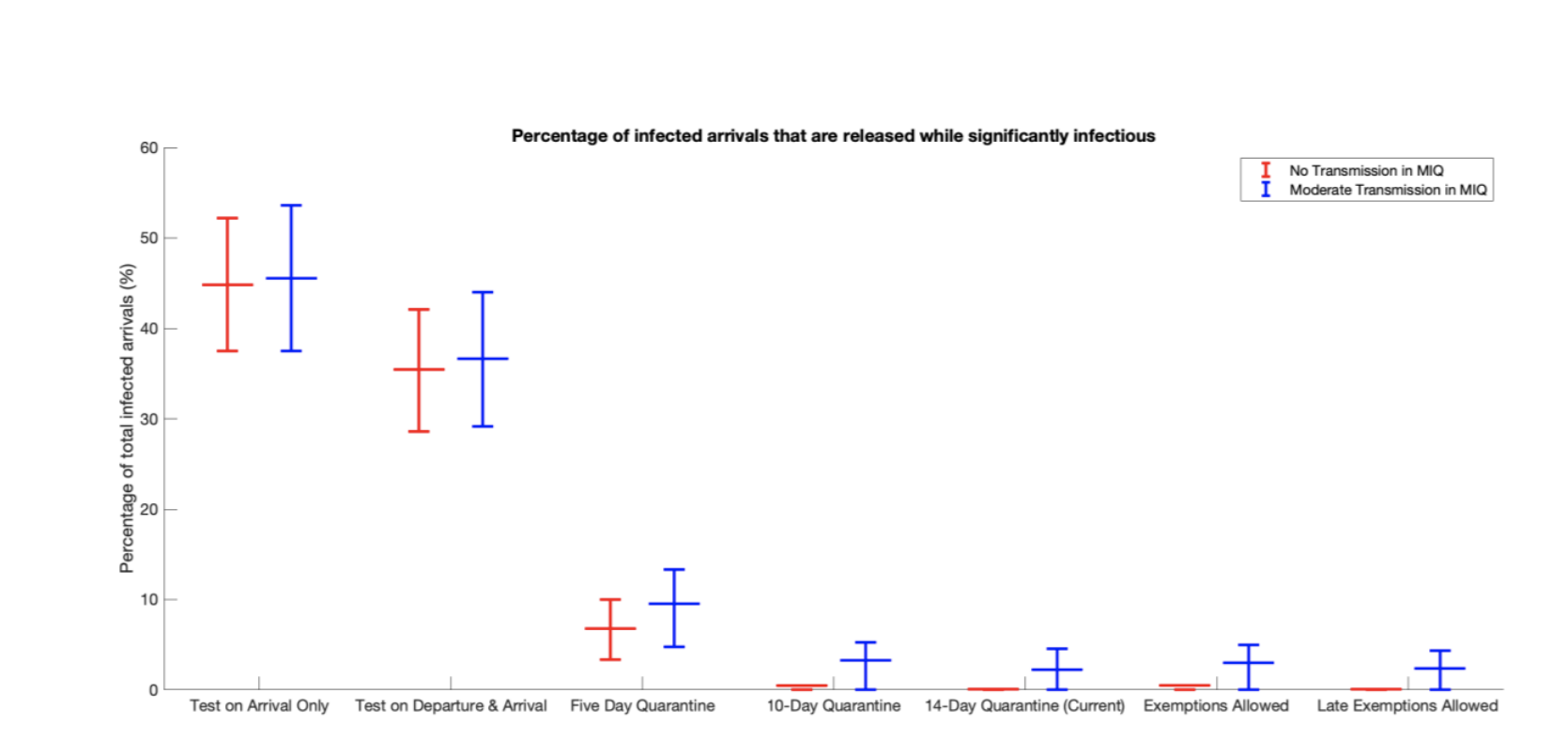How long should someone quarantine to be sure they aren't contagious with Covid?
post by Raemon · 2020-03-21T22:39:30.829Z · LW · GW · 4 commentsThis is a question post.
Contents
Answers 16 Elizabeth 5 lexande 1 waveman None 4 comments
A key question for people figuring out good longterm isolation practices is "how long do I have to be symptom-free before I'm 'certified safe'?"
This post on the typical-course-of-COVID-19 [LW · GW] provides some studies that inform on the question, but doesn't directly answer it yet.
I recall hearing something like "most cases last less than two weeks", but I'm not sure if two weeks is actually a strong enough upper bound that I'd feel comfortable encouraging lots of people to act on it.
This contains two subquestions:
- If you get sick with COVID-19, during what period will you be contagious?
- If you are isolated, and don't appear to have symptoms, how long before you can be confident that you are not a carrier?
(I'm personally most interested in the answer to the second question right now, but both seem important)
Answers
I looked into the success of different countries' quarantines. New Zealand had both the best implementation and the best data, so I draw most of my conclusions from them. With a 14 day quarantine (testing on day 3 and 12), New Zealand had a "barely visible on the graph" number of import-adjacent infections. But according to a statistical model, these are caused by infections caught during quarantine (i.e. a couple with one infected member quarantines together, the second member catches it on day 7, leaves after an effective quarantine of only 7 days, then spreads it in the wild), so if people are completely isolated and occasionally tested, 14 days in indeed sufficient


Since apparently some confirmed cases never develop symptoms (this study of Diamond Princess passengers estimates 18%), it seems the answer to your second question is "never"?
Worth pointing out that if we quarantine for X days and do not actually test, relying on symptoms, then we are selecting for slow incubation and/or mild/no symptoms before X days.
4 comments
Comments sorted by top scores.
comment by Ruby · 2020-04-11T01:06:13.844Z · LW(p) · GW(p)
These papers on viral load probably help inform the answer. It was flagged to me that Ct might not have straightforward interpretation, but I haven't looked into it. So posting these as resources.
https://www.thelancet.com/journals/laninf/article/PIIS1473-3099(20)30113-4/fulltext?fbclid=IwAR3crOZxhVP1eVPMcO_wujJBxHFAjp2fj4_jNj30ld_nVcKTqtcT1IjXozI
https://www.nejm.org/doi/full/10.1056/NEJMc2001737
comment by Scott Garrabrant · 2020-03-22T03:26:34.201Z · LW(p) · GW(p)
You should (more strongly?) disambiguate between how long after being sick are you safe, or how long after being 100% isolated are you safe.
Replies from: Raemoncomment by Sjcs · 2020-03-22T06:34:15.697Z · LW(p) · GW(p)
TL;DR We don't know, it's variable case to case, and could be longer than 25 days from symptom onset if you get sick
In patients admitted to hospital with COVID-19, there are cases (Korea, Singapore) of viral RNA detectable up to 25 days after symptom onset. This is not the same as still being infective, so we don't really know.
In people exposed to SARS-CoV-2, 14 days is an estimation that the vast majority will have developed symptoms by this time (here). However, this doesn't take into account cases that remain asymptomatic throughout their infection (maybe 15-20% from Diamond Princess data)